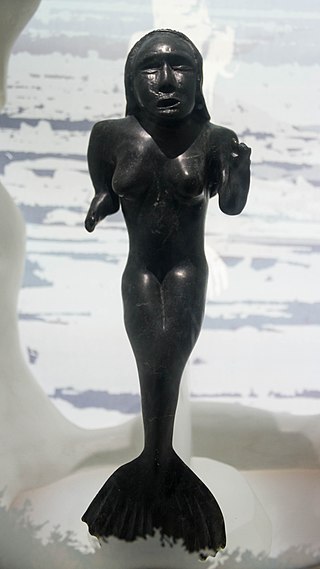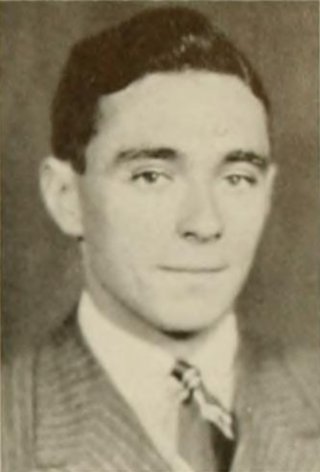Related Research Articles
Progressive education, or educational progressivism, is a pedagogical movement that began in the late 19th century and has persisted in various forms to the present. In Europe, progressive education took the form of the New Education Movement. The term progressive was engaged to distinguish this education from the traditional curricula of the 19th century, which was rooted in classical preparation for the early-industrial university and strongly differentiated by social class. By contrast, progressive education finds its roots in modern, post-industrial experience. Most progressive education programs have these qualities in common:
Educational psychology is the branch of psychology concerned with the scientific study of human learning. The study of learning processes, from both cognitive and behavioral perspectives, allows researchers to understand individual differences in intelligence, cognitive development, affect, motivation, self-regulation, and self-concept, as well as their role in learning. The field of educational psychology relies heavily on quantitative methods, including testing and measurement, to enhance educational activities related to instructional design, classroom management, and assessment, which serve to facilitate learning processes in various educational settings across the lifespan.

Inuit religion is the shared spiritual beliefs and practices of the Inuit, an indigenous people from Alaska, northern Canada, parts of Siberia and Greenland. Their religion shares many similarities with some Alaska Native religions. Traditional Inuit religious practices include animism and shamanism, in which spiritual healers mediate with spirits. Today many Inuit follow Christianity, but traditional Inuit spirituality continues as part of a living, oral tradition and part of contemporary Inuit society. Inuit who balance indigenous and Christian theology practice religious syncretism.
Science education is the teaching and learning of science to school children, college students, or adults within the general public. The field of science education includes work in science content, science process, some social science, and some teaching pedagogy. The standards for science education provide expectations for the development of understanding for students through the entire course of their K-12 education and beyond. The traditional subjects included in the standards are physical, life, earth, space, and human sciences.

Jerome Seymour Bruner was an American psychologist who made significant contributions to human cognitive psychology and cognitive learning theory in educational psychology. Bruner was a senior research fellow at the New York University School of Law. He received a BA in 1937 from Duke University and a PhD from Harvard University in 1941. He taught and did research at Harvard University, the University of Oxford, and New York University. A Review of General Psychology survey, published in 2002, ranked Bruner as the 28th most cited psychologist of the 20th century.
Instructional scaffolding is the support given to a student by an instructor throughout the learning process. This support is specifically tailored to each student; this instructional approach allows students to experience student-centered learning, which tends to facilitate more efficient learning than teacher-centered learning. This learning process promotes a deeper level of learning than many other common teaching strategies.
Irven DeVore was an anthropologist and evolutionary biologist, and Curator of Primatology at Harvard University's Peabody Museum of Archaeology and Ethnology. He headed Harvard's Department of Anthropology from 1987 to 1992. He taught generations of students at Harvard both at the undergraduate and graduate levels. He mentored many young scientists who went on to prominence in anthropology and behavioral biology, including Richard Lee, Robert Trivers, Sarah Hrdy, Peter Ellison, Barbara Smuts, Henry Harpending, Marjorie Shostak, Robert Bailey, Leda Cosmides, John Tooby, Richard Wrangham and Terrence Deacon.

Pedagogy, from Ancient Greek παιδαγωγία (paidagōgía), most commonly understood as the approach to teaching, is the theory and practice of learning, and how this process influences, and is influenced by, the social, political and psychological development of learners. Pedagogy, taken as an academic discipline, is the study of how knowledge and skills are imparted in an educational context, and it considers the interactions that take place during learning. Both the theory and practice of pedagogy vary greatly as they reflect different social, political, and cultural contexts.
Founded in 1920, The National Council of Teachers of Mathematics (NCTM) is a professional organization for schoolteachers of mathematics in the United States. One of its goals is to improve the standards of mathematics in education. NCTM holds annual national and regional conferences for teachers and publishes five journals.
The theme of education in the Baháʼí Faith is given emphasis. Its literature gives a principle of universal and compulsory education, which is identified as one of key principles alongside monotheism and the unity of humanity.
A liberal education is a system or course of education suitable for the cultivation of a free human being. It is based on the medieval concept of the liberal arts or, more commonly now, the liberalism of the Age of Enlightenment. It has been described as "a philosophy of education that empowers individuals with broad knowledge and transferable skills, and a stronger sense of values, ethics, and civic engagement ... characterized by challenging encounters with important issues, and more a way of studying than a specific course or field of study" by the Association of American Colleges and Universities. Usually global and pluralistic in scope, it can include a general education curriculum which provides broad exposure to multiple disciplines and learning strategies in addition to in-depth study in at least one academic area.

John Bertrand Conlan was an American lawyer and Republican politician. He served as a State Senator from 1965 to 1972 and as a United States representative from Arizona from 1973 to 1977.
This glossary of education-related terms is based on how they commonly are used in Wikipedia articles. This article contains terms starting with A – C. Select a letter from the table of contents to find terms on other articles.

Discovery learning is a technique of inquiry-based learning and is considered a constructivist based approach to education. It is also referred to as problem-based learning, experiential learning and 21st century learning. It is supported by the work of learning theorists and psychologists Jean Piaget, Jerome Bruner, and Seymour Papert.

The Netsilik (Netsilingmiut) are Inuit who live predominantly in Kugaaruk and Gjoa Haven of the Kitikmeot Region, Nunavut and to a smaller extent in Taloyoak and the north Qikiqtaaluk Region, in Canada. They were, in the early 20th century, among the last northern indigenous peoples to encounter missionaries from the south.

Primary education or elementary education is typically the first stage of formal education, coming after preschool/kindergarten and before secondary school. Primary education takes place in primary schools, elementary schools, or first schools and middle schools, depending on the location. Hence, in the United Kingdom and some other countries, the term primary is used instead of elementary.
The Woods Hole Conference was held at Woods Hole, Massachusetts as a response to the Soviet Union's launch of the Sputnik series of satellites, in 1959 to identify the problems of science education and to recommend solutions. Woods Hole was held because American educators feared that the Soviet Union was surpassing the United States in educational emphasis on science, math, and foreign languages.
Archetypal pedagogy is a theory of education developed by Clifford Mayes that aims at enhancing psycho-spiritual growth in both the teacher and student. The idea of archetypal pedagogy stems from the Jungian tradition and is directly related to analytical psychology.
Learning by doing is a theory that places heavy emphasis on student engagement and is a hands-on, task-oriented, process to education. The theory refers to the process in which students actively participate in more practical and imaginative ways of learning. This process distinguishes itself from other learning approaches as it provides many pedagogical advantages to more traditional learning styles, such those which privilege inert knowledge. Learning-by-doing is related to other types of learning such as adventure learning, action learning, cooperative learning, experiential learning, peer learning, service-learning, and situated learning.
David Richard Olson is a Canadian cognitive developmental psychologist who has studied the development of language, literacy, and cognition, particularly the mental lives of children, their understanding of language and mind and the psychology of teaching. Olson is University Professor Emeritus at the Ontario Institute for Studies in Education at the University of Toronto, where he has taught since 1966.
References
- ↑ University of Florida, College of Education, Culture & Technology. Man: A Course of Study, archived 17 September 2006, accessed 8 September 2021
- ↑ "Through These Eyes". National Film Board of Canada. Archived from the original on 2012-05-27. Retrieved 2018-04-03.
- ↑ Schudel, Matt (June 7, 2016). "Jerome S. Bruner, Influential Psychologist of Perception, Dies at 100". The Washington Post. Retrieved April 3, 2018.
- ↑ Smith, Mark (2002). "Jerome Bruner and the Process of Education". Infed. Retrieved April 3, 2018.
- ↑ Dembart, Lee (April 25, 1976). "The Proper Study of Mankind". The New York Times. Retrieved April 3, 2018.
- ↑ Kincheloe, Joe L. & Horn, Raymond A.(Eds). (2006), pp. 60–1. The Praeger Handbook of Education and Psychology: Volume 1 ISBN 0-313-33123-5.
- ↑ "Through These Eyes". National Film Board of Canada. 2004. Retrieved 2021-03-04.